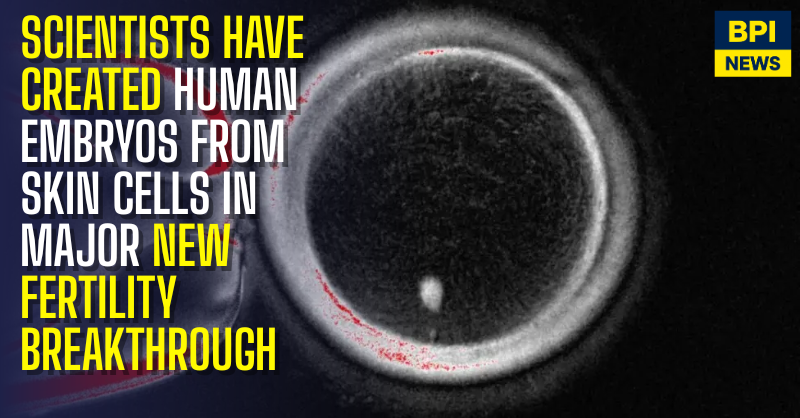Scientists in the United States have, for the first time, created early-stage human embryos by reprogramming DNA taken from skin cells before fertilising them with sperm.
The pioneering work, conducted at Oregon Health and Science University (OHSU) and published in Nature Communications, could transform fertility treatment by enabling embryos to be created from almost any cell in the body. Researchers say the technology could ultimately help women with no viable eggs, men with insufficient sperm, cancer survivors left infertile by treatment, and even same-sex couples seeking genetically related children.
The process involves removing the nucleus from a skin cell and placing it into a donor egg stripped of its own genetic instructions. Unlike conventional cloning, the egg must then be coaxed into discarding half its chromosomes through a process the team has termed “mitomeiosis”. Researchers succeeded in creating 82 functional eggs, some of which were fertilised and developed into embryos that reached six days old.
Professor Shoukhrat Mitalipov, director of OHSU’s Centre for Embryonic Cell and Gene Therapy, said: “We achieved something that was thought to be impossible. Eventually, I think that’s where the future will go, because there are more and more patients who cannot have children.”
However, the technique remains experimental. Success rates are low around 9% and the eggs often discard the wrong chromosomes, which can lead to genetic disorders. Researchers emphasised that clinical use remains at least a decade away and called for open public dialogue about the implications.
Professor Paula Amato, also from OHSU, noted the potential for same-sex couples: “In addition to offering hope for millions with infertility, this method would allow the possibility of same-sex couples to have a child genetically related to both partners.”
Experts welcomed the findings but warned of ethical and safety challenges. Professor Roger Sturmey of the University of Hull said the study underlined “the importance of continued open dialogue with the public” and robust oversight. Professor Richard Anderson of the University of Edinburgh added that the ability to generate new eggs “would be a major advance,” but stressed that “very important safety concerns” must first be addressed.
The study represents an early but significant step in the emerging field of in vitro gametogenesis, which aims to create eggs and sperm outside the body, rewriting the traditional boundaries of human reproduction.


